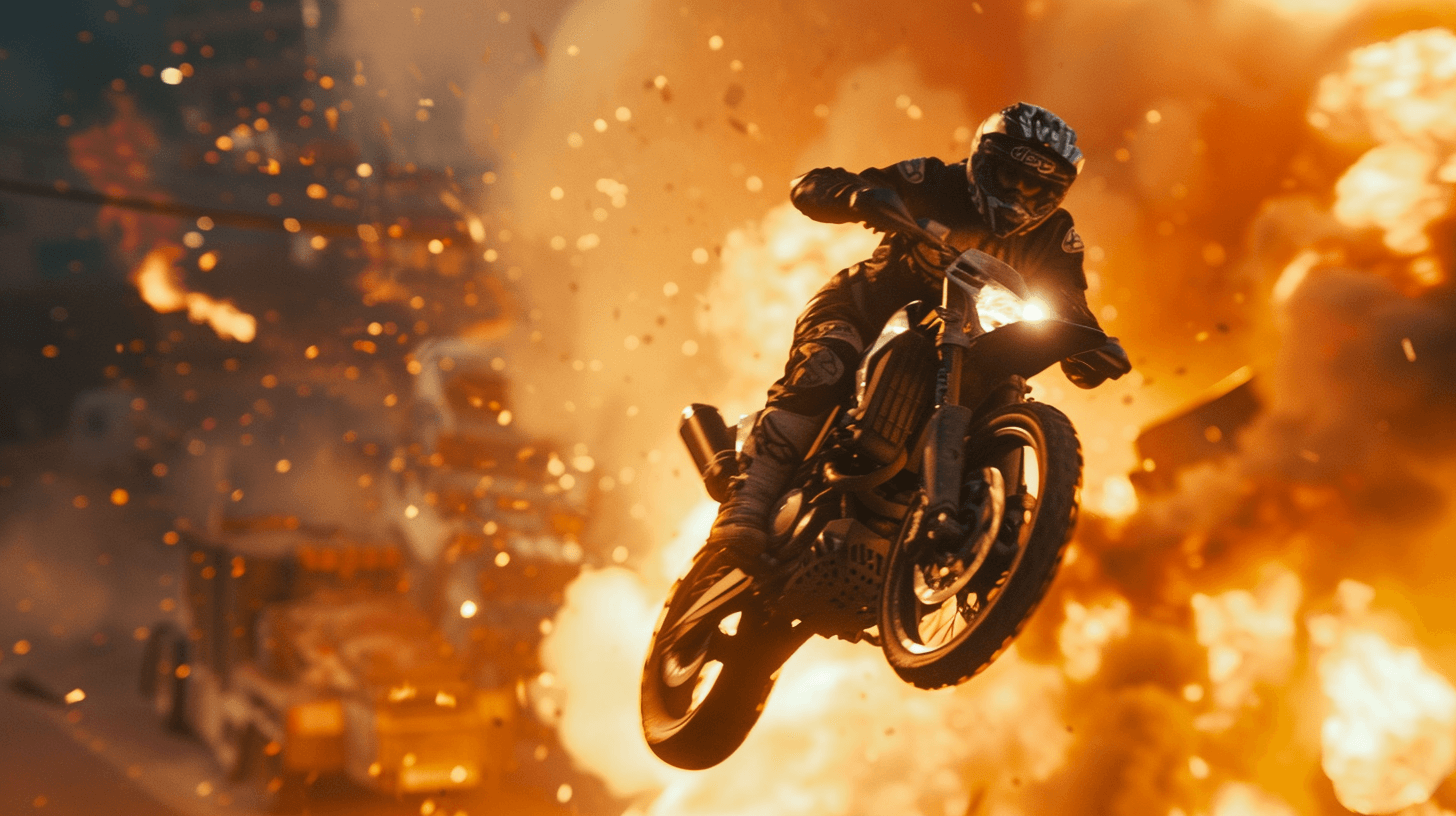How to Include Stunts and Special Effects in Film Budgets
Crafting a film budget that accurately includes stunts and special effects is a complex yet crucial task. Effective budgeting for these elements ensures a smooth production process and helps avoid financial surprises.


A comprehensive understanding of the costs associated with stunts and special effects is essential. This includes the expenses for stunt coordination, safety measures, and the fees for both stunt performers and special effects crews.
💵 For example, the cost of a high-risk stunt can range from $5,000 to $100,000, depending on complexity and required safety measures. Similarly, special effects can cost between $1,000 to $10,000 per scene, influenced by the type of effect and the technology used.

🎬 Planning for Stunts in Film Budgets
Effective stunt planning involves detailed budgeting for coordination and safety. This includes allocating funds for insurance and safety equipment. For instance, ensuring the safety of stunt performers often requires specialized gear and insurance policies, which can add significant costs to the budget. Proper planning helps mitigate allocating funds for insurance and safety equipment expenses without compromising safety.
💥 Special Effects Budgeting
Special effects require careful budget planning, differentiating between practical effects (such as pyrotechnics) and visual effects (like CGI). Practical effects might involve costs for materials and safety measures, while visual effects require high-end software and skilled technicians.
For example, the practical effects for an explosion scene might cost $50,000, while a CGI effect could range from $20,000 to $100,000, depending on the complexity.
💰 Managing and Controlling Costs
Managing the costs of stunts and special effects involves strategic planning and cost-saving measures. This includes negotiating with vendors, using cost-effective materials, and leveraging efficient techniques.
Negotiating with Vendors 🤝
Negotiating with vendors is pivotal for securing favorable rates for equipment rentals, props, and other necessary materials. Establishing strong relationships with vendors can lead to long-term cost savings and access to discounts or special deals. Clearly communicating budget constraints and production needs helps vendors tailor their offerings, potentially resulting in cost reductions.
Using Cost-effective Materials 🛠️
It is paramount to utilize cost-effective alternatives for materials without sacrificing quality. Researching and testing different materials helps identify options that offer the desired visual impact at a lower cost. Factors like durability, ease of use, and environmental impact guide the selection of cost-effective materials that meet production requirements.
Leveraging Efficient Techniques 🎥
Employing efficient techniques optimizes resource utilization and minimizes waste throughout the production process. Pre-visualization tools enable precise stunt and effect planning, identifying potential issues early on and avoiding costly revisions during filming. Seamlessly incorporating digital and practical effects enhances visual storytelling while optimizing production costs.

🌟 For example, Filmustage offers AI-driven tools that assist in pre-visualization and budgeting, ensuring cost-effective production planning.
🎞️ Real-World Examples
Real-world examples highlight the importance of detailed budgeting for stunts and special effects.
"The Lord of the Rings" Trilogy (2001-2003) 🗡️
Director Peter Jackson's epic fantasy trilogy extensively utilized practical effects and innovative techniques to bring J.R.R. Tolkien's world to life. By negotiating closely with Weta Workshop, a special effects company based in New Zealand, Jackson ensured the efficient creation of costumes, props, and visual effects. This collaborative approach allowed for stunning visuals while staying within budgetary constraints.
"Gravity" (2013) 🛰️
Directed by Alfonso Cuarón, "Gravity" employed a blend of practical effects and CGI to simulate the zero-gravity environment of space. Cuarón and his team utilized cost-effective materials such as LED lighting and robotic camera rigs to achieve immersive visuals. This strategic use of resources contributed to the film's critical and commercial success while effectively managing production costs.
"Mad Max: Fury Road" (2015) 🔥
Director George Miller's action-packed film relied heavily on practical effects and meticulous planning to create high-octane sequences. The production team utilized extensive pre-visualization and practical stunts to choreograph complex action scenes. By prioritizing practical effects over CGI, Miller achieved visually stunning results while optimizing production costs.
The Role of Filmustage in Cost Management
In an industry where creativity and innovation often clash with financial constraints, the ability to manage costs effectively is paramount. By adopting a strategic approach to cost management in stunts and special effects, filmmakers can bring their creative visions to life while ensuring the success and sustainability of their productions.
🌟 Tools like Filmustage offer invaluable support in cost management efforts. Filmustage's AI-driven software provides filmmakers with a streamlined approach to production planning. Filmustage's script breakdown and analysis feature provides filmmakers with comprehensive insights into their projects' resource requirements. By analyzing scripts and identifying elements such as stunts, special effects, and location requirements, filmmakers can accurately assess potential costs and allocate resources efficiently from the early stages of pre-production.
By leveraging tools like Filmustage, filmmakers can streamline the budgeting process and ensure that their productions are safe and visually stunning.
From Breakdown to Budget in Clicks
Save time, cut costs, and let Filmustage’s AI handle the heavy lifting — all in a single day.